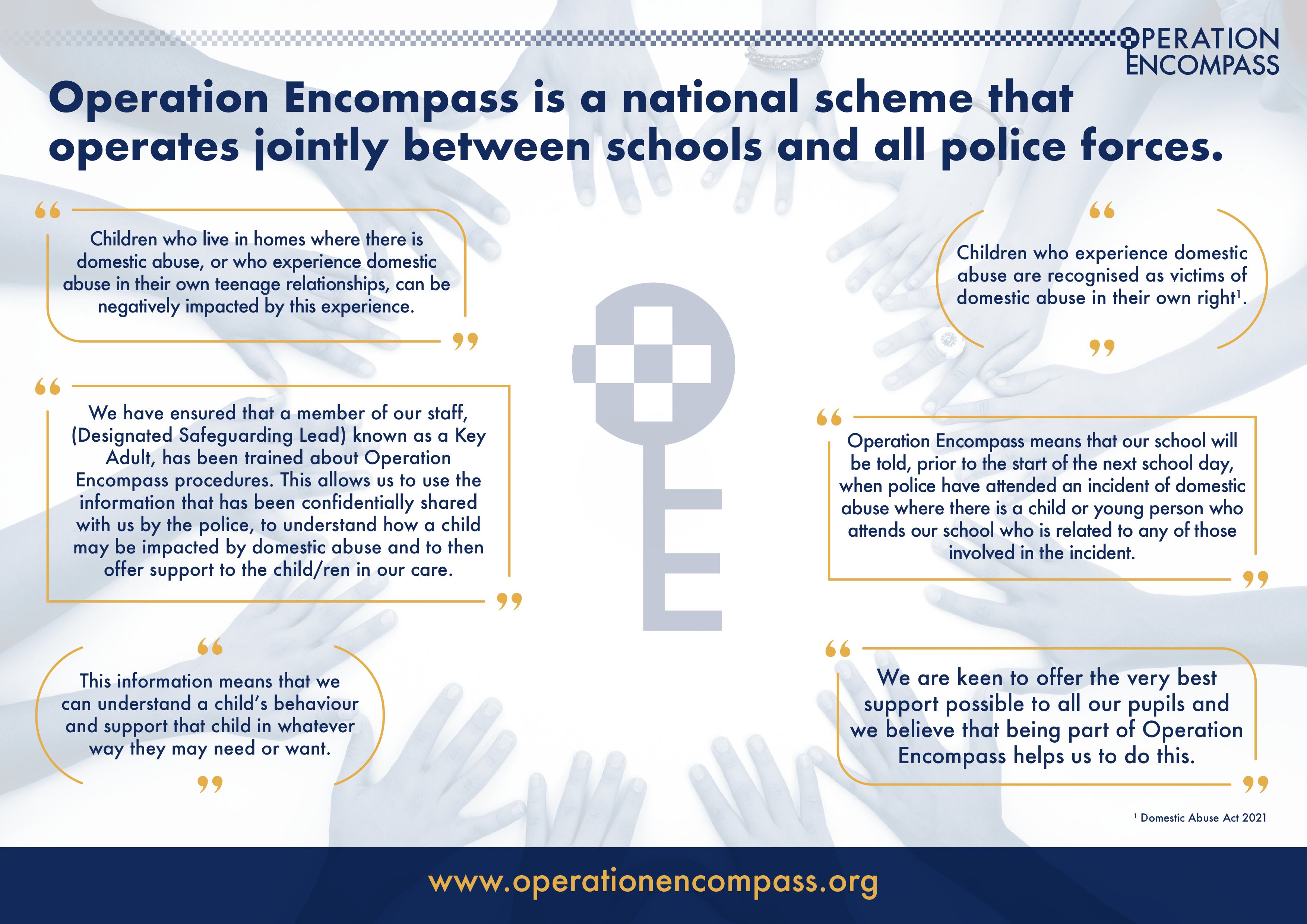Safeguarding
It is every school’s statutory responsibility to safeguard and promote the welfare of children, as outlined by the DFE in its publication Keeping Children Safe in Education.
This means that all schools must protect children from maltreatment, prevent impairment of children’s mental and physical health or development, ensure that children grow up in circumstances consistent with the provision of safe and effective care and take action to enable all children to have the best outcomes.
At Hollins Grundy we ensure that everyone who comes into contact with children and their families is clear on the role that they play in safeguarding children. All staff and governors have up to date safeguarding training and have completed additional safeguarding training courses annually on different topics. New members of staff are trained as part of their induction.
Hollins Grundy is committed to providing a safe and secure environment for all children, staff and visitors. In addition, we promote an ethos where children and adults feel confident about sharing their concerns about their own safety or the well being of others.
At Hollins Grundy our Key Adults are:
Our designated safeguarding lead is Mr S Waddington (Headteacher) and our deputy lead is Mrs R Jacques. The governor with responsibility for safeguarding is Mr D. Thomas-Stanley.
The DFE document Keeping Children Safe In Education places the following statutory duties on all schools:
- Safeguarding and promoting the welfare of children is everyone’s responsibility. Everyone who comes into contact with children and their families and carers has a role to play in safeguarding children. In order to fulfil this responsibility effectively, all professionals should make sure their approach is child-centred. This means that they should consider, at all times the best interests of the child.
- Schools should be aware of and follow the procedures issued by Bury Integrated Safeguarding Partnership (BISP).
- Staff should be vigilant to signs of abuse and to whom they should report concerns to.
- Schools should have procedures in place which are disseminated to all staff for handling suspected or actual cases of abuse of pupils, including procedures to be followed in case of allegations against persons in a position of trust.
- Every school should have a designated senior person who is a member of the senior management team as the person responsible for coordinating safeguarding/child protection work within the school and with other agencies.
- Staff at all levels should receive training to raise their awareness of signs and symptoms of suspected or actual abuse at least every three years.
- All schools should share information and work in partnership with other agencies where there are concerns about a child’s welfare.
- Children included everyone under the age of 18.
- No single professional can have a full picture of a child’s needs and circumstances. If children and families are to receive the right help at the right time, everyone who comes into contact with them has a role to play in identifying concerns, sharing information and taking action.
The full document is available to download at the bottom of this page.
Bury Operation Encompass
The purpose of Bury Encompass is to safeguard and support children and young people who have been exposed to Domestic abuse. This abuse impacts on children in a number of ways. Children are at increased risk of physical injury during an incident, either by accident or because they attempt to intervene. Even when not directly injured, children are greatly distressed by witnessing the physical and emotional suffering of a parent.
Encompass has been created to address this situation. It is the implementation of key partnership working between the police and schools. The aim of sharing information with local schools is to allow ‘Key Adults’ the opportunity of engaging with the child and to provide access to support that allows them to remain in a safe but secure familiar environment.
Following the report of an incident of domestic abuse, by 9.00am on the next school day the school’s Key Adult will be informed that the child or young person has been involved in a domestic incident. This knowledge, given to schools through Operation Encompass, allows the provision of immediate early intervention through silent or overt support dependent upon the needs and wishes of the child.



